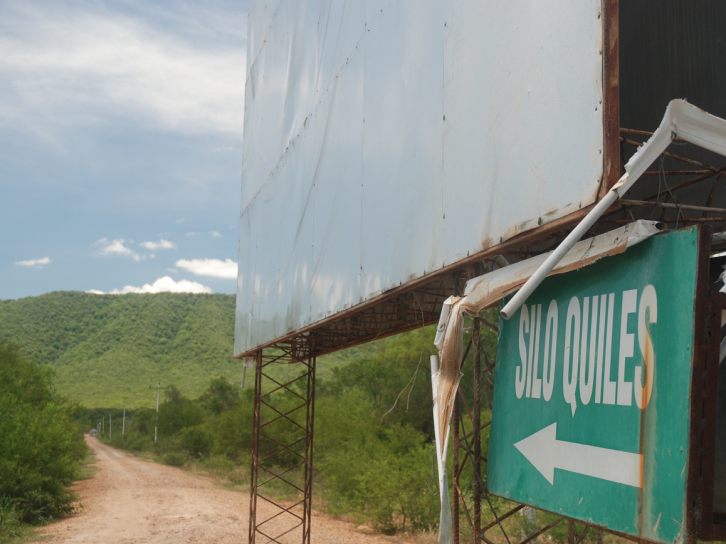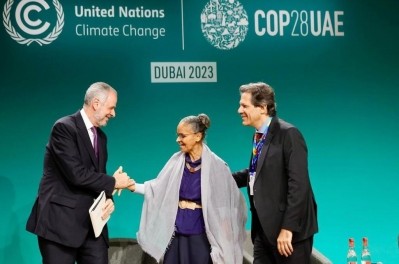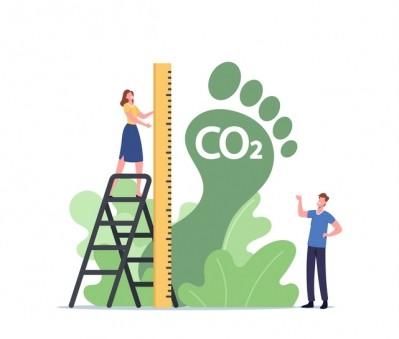Global Witness: Cargill linked to soy led deforestation in Bolivia

The NGO’s report claims that receipts it obtained show Cargill is systematically failing to collect key data about the origins of its soy supplies in Bolivia, without which it cannot confirm purchases are deforestation-free.
It maintains that the food giant has been directly purchasing soy from five farms in Bolivia responsible for more than 20,000 hectares of deforestation.
The investigation explores Cargill’s soy purchases from five regions farmed by Mennonite colonies - religious communities dedicated to traditional, communal farming - in Santa Cruz, Bolivia. These colonies are located in Bolivia’s Chiquitano forest - a biodiversity hotspot and 'transition zone' between the tropical Amazon and dry Chaco forests.
These findings cast serious doubt on Cargill’s public commitments to achieving fully traceable and 'deforestation-free' supply chains in the near future, according to Global Witness.
Cargill also appears to be open to sourcing future soy supplies from areas that would put more than three million hectares of standing forest at risk, said the campaign group, citing analysis of a company map leaked to it.
Deforestation impact
The rate of deforestation and land conversion driven by soy production in Bolivia is seven times higher than Brazil. Limited exports of soy from Bolivia beyond the Andes region means there is little exposure for the EU or other consumer markets outside South America, notes a report from Trase.
"In 2022, for the third year running, the only two other countries that lost more primary forest were Brazil and the Democratic Republic of the Congo, according to Global Forest Watch," reads the Global Witness publication.
Easily the most impacted region in respect of deforestation in Bolivia is Santa Cruz, in the east of the country, reported the NGO.
“Over the last 20 years an estimated 83% of all Bolivian deforestation has occurred in that region, and the expansion of mechanized agriculture, mainly for soy and cattle, is reported to be the main driver.”
Global Witness identified dozens of areas in Santa Cruz deforested and planted with soy since 2017. “We spoke with farmers and supply chain actors to uncover who has been buying this soy. The forest in the region we visited is known as the Chiquitano, considered to be globally “unique” and “the last great tropical dry forest in the world,” as well as an ecological “transition zone” between the tropical Amazon and dry Chaco forests.”
Cargill can be linked to many of those areas in Santa Cruz identified by the NGO either directly through its subsidiary Cargill Bolivia, or indirectly through other companies from which other Cargill entities buy soy, reported Global Witness. "Most of the areas visited by our researchers were 'colonies' – owned and farmed by Anabaptist Christian communities called Mennonites, who farm areas sometimes extending for tens of thousands of hectares," found the advocacy group.
The links between Cargill and these colonies, it continued, can be proven by receipts bearing the US company’s name that were shown to Global Witness by Mennonites living there and known as distributors - small-scale soy industry go-betweens collaborate with the farmers, the seed, pesticide, and fertilizer companies, and the intermediary companies brokering sales to the processing mills and/or exporters and traders.
Trader response
Cargill told FeedNavigator that it does business with all five communities identified by Global Witness.
“We source about 16% of their production. The other 84% of their production are sold to other players in the market."
Cargill also suggested that the purchases analysed by Global Witness “could” have come from lands deforested before 2017, meaning the soy was potentially compliant with Cargill’s commitments and local law, except in the case of one community where they were unsure.
“As part of our efforts to trace the grains from indirect suppliers, Cargill has been working closely with Mennonites communities and had already mapped 26 polygons - a type of farm boundary - from those five colonies. Based on this mapping and on the mass balance methodology, we can infer that the products received from at least four from the five colonies could be produced in the hectares opened before 2017. Just on the case of one of those communities we cannot assure that the grains were produced on lands deforested before 2017. Which does not necessarily mean that this is non-compliant with the local legislation or Cargill commitments.”
Socio-environmental criteria for soy origination
Cargill said it has been working with the sector, through the Bolivian Soy Roundtable, to establish minimum socio-environmental criteria for soy origination in the country.
“We constantly monitor our suppliers and can confirm that the Mennonite communities in question are in compliance with our Policy on Sustainable Soy. Through our grievance procedure, we investigate all allegations received, and if we find any violations of our policies and commitments, the producers are immediately blocked from our supply chain, as expressed in our Supplier Code of Conduct.”
Banks are 'complicit'
Global Witness argues that new due diligence regulations are required in global finance centers like the UK, US, and EU to stop finance flowing to companies unwilling or unable to prevent deforestation through their purchases and supply chains.
Complicit in Cargill’s Bolivia operations are global banks, it maintains. These banks include Barclays, BNP Paribas, HSBC, and Santander. The NGO, referencing data from the Forests and Finance database, said those institutions have provided financial services to Cargill worth billions of dollars since 2021.
Banks and financial institutions, it said, should suspend services, financing, and contracts with Cargill until the company can demonstrate a credible plan to meet its zero deforestation targets and prevent all illegal deforestation in its supply chain.
The NGO also believes that banks should review client relationships with Cargill and its subsidiaries as part of a process of ongoing due diligence to prevent the financing of deforestation and laundering of the proceeds.
Due diligence
The campaign group is urging the EU, UK, and US governments to act as well, calling on them to legislate to introduce mandatory environmental and human rights due diligence for the financial sector to prevent lending and investment in companies with insufficient deforestation controls, accompanied by effective monitoring and enforcement mechanisms and a civil and criminal penalty regime.
More specifically, it wants those authorities to introduce rigorous and detailed environmental due diligence standards to accompany this legislation requiring banks and other financial institutions to identify, report, mitigate and prevent the risk of deforestation and associated activities such as land grabs and human rights abuses.
It said those governments must also ensure that trade negotiations, development finance or other policies targeting Bolivia do not increase the pressure on the country’s forests by promoting agricultural expansion and other economic activities at a substantial risk of increasing soy-related deforestation and conversion.
Global Witness’ recommendations to Cargill are manifold, chief among them is the call to honor the New York Declaration on Forests commitment, adopt a 2020 cut-off date for soy cultivated on deforested land and a 2025 target date for deforestation-free soy supply chains in line with best practice, and expand its organizational zero deforestation targets and strategies to include all biomes in Bolivia, including the Chiquitano.
The Bolivian government, continued the activists, should enforce the requirement in the 2012 law to protect primary forests, manage them sustainably, and ban their conversion to other land uses. This must include an immediate moratorium on cutting down forest that is not suitable for agricultural purposes. The Bolivian authorities should also regulate the soy and other agricultural products sectors so that full traceability from point-of-harvest to processing mill and/or export is required for all operators.









